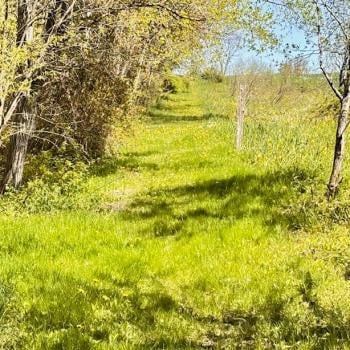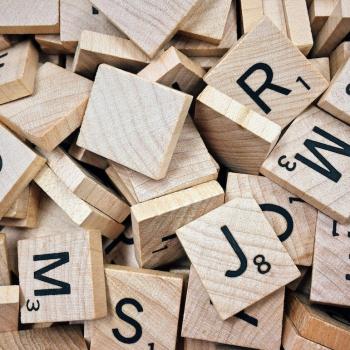But what pulls me up here is that I can't accept that harmony. And while I am on earth, I make haste to take my own measures. You see, Alyosha, perhaps it really may happen that if I live to that moment, or rise again to see it, I, too, perhaps, may cry aloud with the rest, looking at the mother embracing the child's torturer, 'Thou art just, O Lord!' But I don't want to cry aloud then. While there is still time, I hasten to protect myself and so I renounce the higher harmony altogether.
It's not worth the tears of that one tortured child who beat itself on the breast with its little fist and prayed in its stinking outhouse, with its unexpiated tears to 'dear, kind God'! It's not worth it, because those tears are unatoned for. They must be atoned for, or there can be no harmony. But how? How are you going to atone for them? Is it possible? By their being avenged? But what do I care for avenging them? What do I care for a hell for oppressors? What good can hell do, since those children have already been tortured? And what becomes of harmony, if there is hell? I want to forgive. I want to embrace. I don't want more suffering. And if the sufferings of children go to swell the sum of sufferings which was necessary to pay for truth, then I protest that the truth is not worth such a price.
I don't want the mother to embrace the oppressor who threw her son to the dogs! She dare not forgive him! Let her forgive him for herself, if she will, let her forgive the torturer for the immeasurable suffering of her mother's heart. But the sufferings of her tortured child she has no right to forgive; she dare not forgive the torturer, even if the child were to forgive him! And if that is so, if they dare not forgive, what becomes of harmony?
Is there in the whole world a being who would have the right to forgive and could forgive? I don't want harmony. From love for humanity I don't want it. I would rather be left with the unavenged suffering. I would rather remain with my unavenged suffering and unsatisfied indignation, even if I were wrong. Besides, too high a price is asked for harmony; it's beyond our means to pay so much to enter it. And so I hasten to give back my entrance ticket, and if I am an honest man I am bound to give it back as soon as possible. And that I am doing. It's not God that I don't accept, Alyosha, only I most respectfully return Him the ticket.
A 3,500-year-old text anticipates Ivan. Moses says to God—and in the text offers an "explanation of suffering"—"You have promised to redeem the people in the future. That's not good enough, for how does that help the babies brutally killed and buried in the mortar of Egyptian brick?" It is the same with biblical Abraham, who demands divine accountability when he cries out, "Will the Judge of the Whole World Not Do Justice?"
The outraged existential challenge, which Ivan, Moses, and Abraham hurl against God, is also God's highest embrace. When we rage like Ivan, we affirm the dignity and validity of our rage. We recognize that the rage is holy, welling as it does from the deepest recesses of our being. We refuse to invalidate our core certainty of self and capitulate to the indifference of dogma that denies the uncertainty of evil. We refuse to deny our rage, and in so doing we affirm the holiness of our moral intuitions. In giving voice to our deepest uncertainties, we paradoxically confirm our inner certainty of the divinity in ourselves. Dostoyevsky's mistake was only that he thought Ivan's speech to be heresy.
Where—is God
R. Nachman of Bratzlav, in a profound and daring teaching, reveals the light shimmering in Alyosha's speech. It is a teaching on the word "Ayeh." Ayeh in Hebrew means "where," in the sense of "where is God?" Ayeh encapsulates in one word Alyosha's entire oration. I want to share with you R. Nachman's teaching directly, in my trans-interpretation of the original Hebrew text. The bracketed words are my additions:
When one follows the path of intellect (certainty)one may encounter
multiple mistakes and pitfalls.
There are many who fell
and who caused the world to fall
and all through their intellect. (false certainty)
. . . . when you fall into uncertainty
the fall per se
and the descent
are the ultimate ascent.
For all of creation . . .
derives sustenance
from the ten revealed utterances of creation (certainty)
but the place of the fall
derives sustenance
from the hidden utterance. (uncertainty)
(which is keter)
. . . in the place of the fall
Certainty can give no nourishment.
There only the hidden utterance (uncertainty)
gives nourishment.
When a person says 'Ayeh,' where is the place of his glory
when he realizes how distant he is
how deeply he has fallen into uncertainty
this, itself, is his fixing




